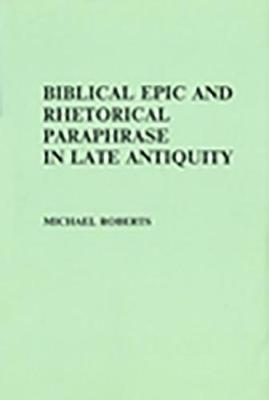The turning of biblical texts into Latin poetry - biblical paraphrase - was a significant literary activity in late antiquity (third to sixth centuries AD). The most important surviving examples of this form are Juvencus and Sedulius (of the Gospels), Arator (of Acts), "Cyprianus Gallus" (Genesis to Judges), Claudius Marius Victorius (Genesis) and Avitus (parts of Genesis and Exodus). Generally described as biblical epics because they are written in hexameters and imitate pagan epic (especially Virgil), they have also been widely recognized to have drawn for their technique of composition on the rhetorical school exercise of paraphrase.
Dr. Roberts analyses in convincing detail how the epic genre interacted with the biblical text through the medium of paraphrase to produce a distinctively Christian literature. He begins by offering the first modern study of paraphrase; two chapters describe its theory and practice, taking into account the standard rhetorical handbooks and recently discovered papyrological evidence. From this perspective, he analyses the types of alterations biblical epic writers made to the biblical text, thereby demonstrating the literary effects they were trying to achieve.
- ISBN10 0905205243
- ISBN13 9780905205243
- Publish Date 1 December 1985
- Publish Status Active
- Publish Country GB
- Imprint Francis Cairns Publications Ltd
- Format Hardcover
- Pages 253
- Language English
